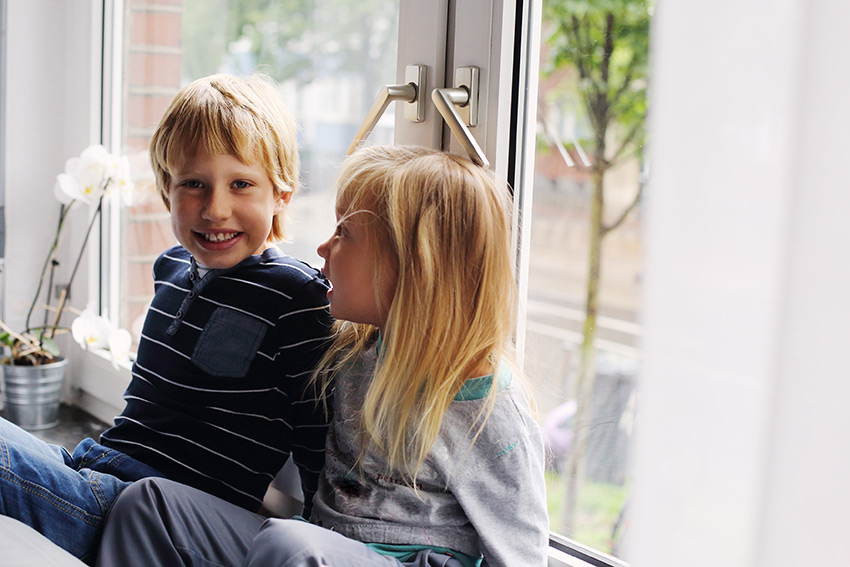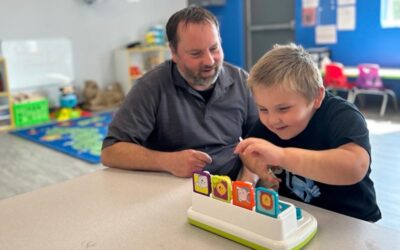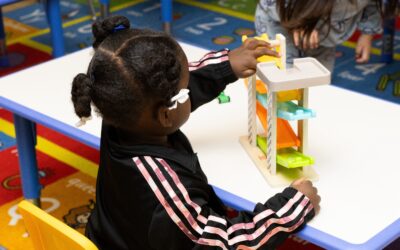It’s no secret that having a child on the autism spectrum can be challenging in a variety of ways. One such challenge that is often overlooked, is having to explain to other children and siblings why things are different for a child on the spectrum.
It can already be complicated explaining to other adults what the autism spectrum is, let alone the steps you have to take in your daily life to accommodate your child’s needs and skills. When the rules of the house are different for a child on the spectrum versus their neurotypical siblings, conflicts may arise. Luckily, there are many resources and techniques available to parents who are having trouble with explaining autism to the neurotypical children in their life.
Focusing on Positives
Like much of the dialogue and terminology that surrounds autism these days, it’s always important to focus on the positives when discussing children on the spectrum to neurotypical children. Using people-first language, and talking about your child’s skills and successes is crucial to teaching their siblings or friends to view autism through a more positive lens.
In some cases, labeling a child with autism as unique or special to the neurotypical child can lead to a feeling of separation not beneficial to their relationship. Instead, when focusing and discussing the positives, try fostering a sense of compassion and duty by explaining to neurotypical siblings how to communicate to other children that their brother or sister is on the spectrum. This responsibility can foster a sense of belonging rather than separation, as the neurotypical child feels called to support their sibling or friend’s uniqueness.
Hopefully, most children’s natural and sunny disposition will make it easy for them to see why autism can make their sibling impressive, but what about the times when autism makes their sibling display repetitive behavior issues?
Helping Them Understand the Negatives
Even with your best efforts and early intervention, repetitive behaviors can still happen and be difficult to manage. When tantrums as a result of sensory overload occur in your child with autism, it’s hard to help a neurotypical child understand what is happening, and how it is different from just being upset. To help them understand, it can be helpful to debrief the neurotypical child once the child on the spectrum has calmed down. You may get better results especially if you:
- Incorporate the child on the spectrum in the conversation, allowing them to express what they feel when they experience sensory overload or display a repetitive behavior.
- Explain, in a way appropriate to that child’s developmental stage, that for children with autism, information is processed a little differently, and that can change the way they communicate that they feel overwhelmed.
- Allow and encourage honest questions from the neurotypical child. Children are curious by nature, and their questions aren’t meant to be rude, but genuinely inquisitive. Being able to understand what it is they’re confused about can help put things into perspective.
Though it may take some time, eventually neurotypical siblings will come to understand the environments and stimuli that affect their brother or sister with autism in both positive and negative ways. Helping them understand autism at a young age can turn the neurotypical child into an ally that helps support you in supporting your child with autism.
Play Inclusive, and Use Your Resources
All kids like to play, but some have very different playstyles. It’s likely that some of the things that are fun for your neurotypical child, may not be so for your child with autism. However, That doesn’t have to limit your children’s playtime.
Make a list of the activities they each enjoy when playing, and try and find the commonalities. This can make it easy to plan playtime that is inclusive and fun for everyone. There’s also many resources online that can help you support your children having fun together. Additionally, many public events and spaces in Chicago have accessibility options that make enjoying an event or space sensory-friendly.
Don’t forget, we’re a resource too! Be sure to keep up with our Twitter feed, where we post local events and happenings that are inclusive and fun for the whole family. If you have any questions about how we can help support your child with autism, visit our contact page to get in touch.



